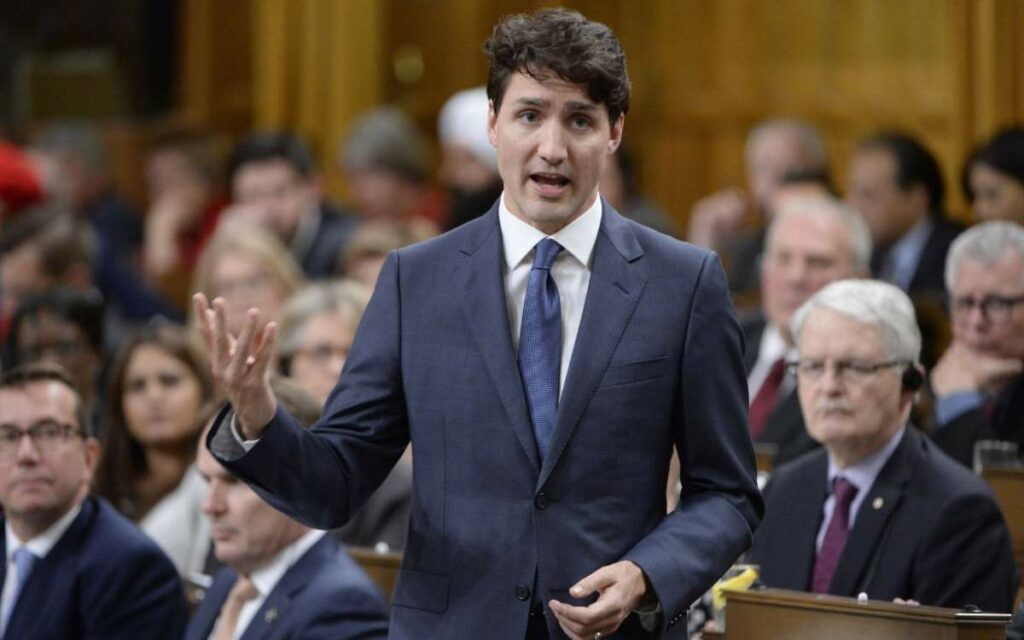
With the Trudeau government’s online ‘censorship’ bill heading back to the House of Commons this week, now is the time for Liberal MPs to decide what they want their legacies to be. Photo credit: The Canadian Press/Adrian Wyld
Liberal backbenchers have a first-rate opportunity to prove that MPs are more than trained seals by insisting that Prime Minister Justin Trudeau accept important amendments added to Bill C-11 by senators that he appointed to the chamber.
Librarians, civil liberties organizations, award-winning authors, trading partners, hundreds of thousands of Canadians, and scores of Trudeau-appointed senators have spoken out about the dangers of Bill C-11.
The Trudeau government’s broadcast regulation bill is a gateway to censorship. As writer Margaret Atwood has warned, Bill C-11 could lead to “creeping totalitarianism.”
Bill C-11 would give government bureaucrats the power to regulate what counts as Canadian content in the online world. It would require the content that bureaucrats in downtown Ottawa define as Canadian be amplified while, in effect, quieting all other content.
Under the version of the bill that the Liberals rammed through the House of Commons last June, bureaucrats would be able to filter and regulate what Canadians see in their streaming feeds and on social media.
Just weeks ago, the Senate also passed Bill C-11. But two Trudeau-appointed senators inserted a very important amendment. The version of Bill C-11 that the Senate passed prohibits government bureaucrats from filtering Canadians’ social media posts while still allowing for streaming content to be regulated.
While Canada would be better off with Bill C-11 tossed onto the ash heap of history, the Trudeau government seems oddly determined to push through its censorship agenda in some form.
If Liberal MPs are prepared to buckle to pressure from the Prime Minister’s Office and support the government’s censorship legislation, they should demand, at a minimum, that the government accept the Senate’s amendments and safeguard user-generated content.
The government has yet to put forward even a weak rationale for handing government bureaucrats the power to filter our Twitter feeds.
There is a strong consensus that Bill C-11 is dangerous. As Trudeau-appointed senator and award-winning author David Adams Richards put it, “this law will be one of scapegoating all those who do not fit into what our bureaucrats think Canada should be. Stalin, again, will be looking over our shoulder.”
With Bill C-11 heading back to the House of Commons this week, now is the time for Liberal MPs to decide what they want their legacies to be.
Do they really want to be the cohort that handed government bureaucrats the unprecedented power of regulating user-generated content? No other democratic government in the world has sought to do what Trudeau appears hellbent on doing.
Liberal MPs voted for Bill C-11 last June, with user-generated content regulation included in the bill, because it was the only version of Bill C-11 put before Parliament. But now there’s a second version of the Bill: a bill crafted by Trudeau-appointed senators that shields Canadians from bureaucratic filtering on social media. This time around, backbench Liberal MPs have a second option.
It’s time for Liberal backbenchers to stand up and make their voices heard. They need to tell Trudeau and his leadership team to accept the important amendments senators have made to Bill C-11. And Bloc and NDP MPs, who voted for the original version of Bill C-11 as well, should join them.
Canadians’ right to free expression and free speech is on the line. It’s time for MPs to stand up and be counted.

Jay Goldberg is the Ontario Director at the Canadian Taxpayers Federation. He previously served as a policy fellow at the Munk School of Public Policy and Global Affairs. Jay holds a Ph.D. in Political Science from the University of Toronto.






